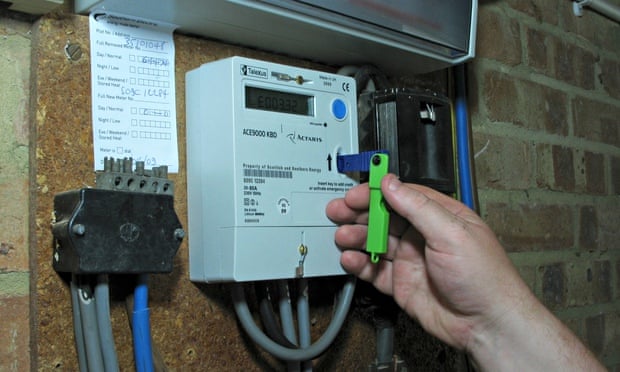
The news that there have been more than half a million pre-payment energy meters forcibly installed into people’s homes over the last six years struck a chord with me.
Two years ago, fresh out of university halls and living in our first truly independent home for less than a month, my housemates and I were woken up by two men in blue boiler suits. Court warrant in hand, they were ready to install a pre-payment meter.
We were obliged to let them in and hid in our rooms, considering whether or not to make an interjection, while they rummaged grumpily in our meter and boiler cupboard. They left us an hour later with no information and a pre-payment meter with £3 credit on it… which later ran out halfway through my shower.
It wasn’t until I had sat through six hours of hold music – none of the energy companies wanted to take responsibility for our situation – that we realised the installation had been triggered by a £1,000 debt on the previous tenants’ account.
Gillian Guy, chief executive of the Citizens Advice Bureau, says pre-pay customers have been getting a raw deal for too long. “They face a limited number of tariffs and pay on average £80 more per year on their energy bills than direct debit customers,” she says. “Topping up can be difficult, with customers only able to top up in store instead of being able to add money to their meter online or over the phone.”
But the main issue was with the extra cash. The meter made balancing limited student finances difficult, and talking to other students, we soon realised we were paying way above what we should have been. The only positive aspect was that it made us more energy conscious.
Imogen Ahlquist, 21, a fashion student at the University of Westminster, also had to deal with pre-pay meter problems. “It was already in the house when we moved in,” she says. “In the winter it was a pain in the arse because we were always having to top up. Gas alone cost us around £100 per month.”
Ahlquist and her flatmates looked into changing the meter but it seemed like too much hassle. “I wouldn’t have a pre-pay meter if I had the choice,” she says.
Despite the fact it shouldn’t have been installed in the first place, we weren’t able to get rid of our meter either without paying an extra £90. We were left using it for the rest of our tenancy and initially we were even charged every time we topped up, because energy companies sometimes recoup their debt by charging it to the pre-pay meter. We would top up £10 and they would take five. This money was eventually refunded many months later.
The recent figures from Ofgem, the government’s electricity and gas market watchdog, show that 97,000 pre-pay gas and electricity meters were installed in England, Wales and Scotland last year alone, in efforts to recoup debt.
During the past six years the number of installations was highest in 2013, the year ours was installed, when around 111,000 pre-payment meters were put in.
“We didn’t pay our bills for about nine months because we sort of viewed bills as imaginary,” says Achille Crawford, 22, a Goldsmiths graduate, who also had a pre-payment meter installed in 2013. “Someone came in our house and changed our meter while we were out. We had a huge bill to pay later for having it changed.”
“They just fitted it there and then. I was 19 at the time and the only one in the house. I was completely intimidated,” says Riley. “We moved out really soon afterwards, so we never had to top up the pre-pay meter, but I didn’t get my deposit on the house back.”Laura Riley, 22, a student at Goldsmiths, faced a similar situation when she and her housemates didn’t pay bills for a year because they didn’t trust their landlord, who would dictate their bills to them without showing them the letters. Then one day, two men with a warrant turned up without warning to install a meter.
As young people trying to navigate the adult world, we should have been protected from this kind of treatment, but it’s likely families have suffered the most.
It’s good that Ofgem says it will investigate the practice, and that it should only be used as a last resort.
I was still getting letters and phone calls from energy companies saying that we owed them money a year after my fiasco began. It’s clear these companies need to be brought to heel.
No comments:
Post a Comment